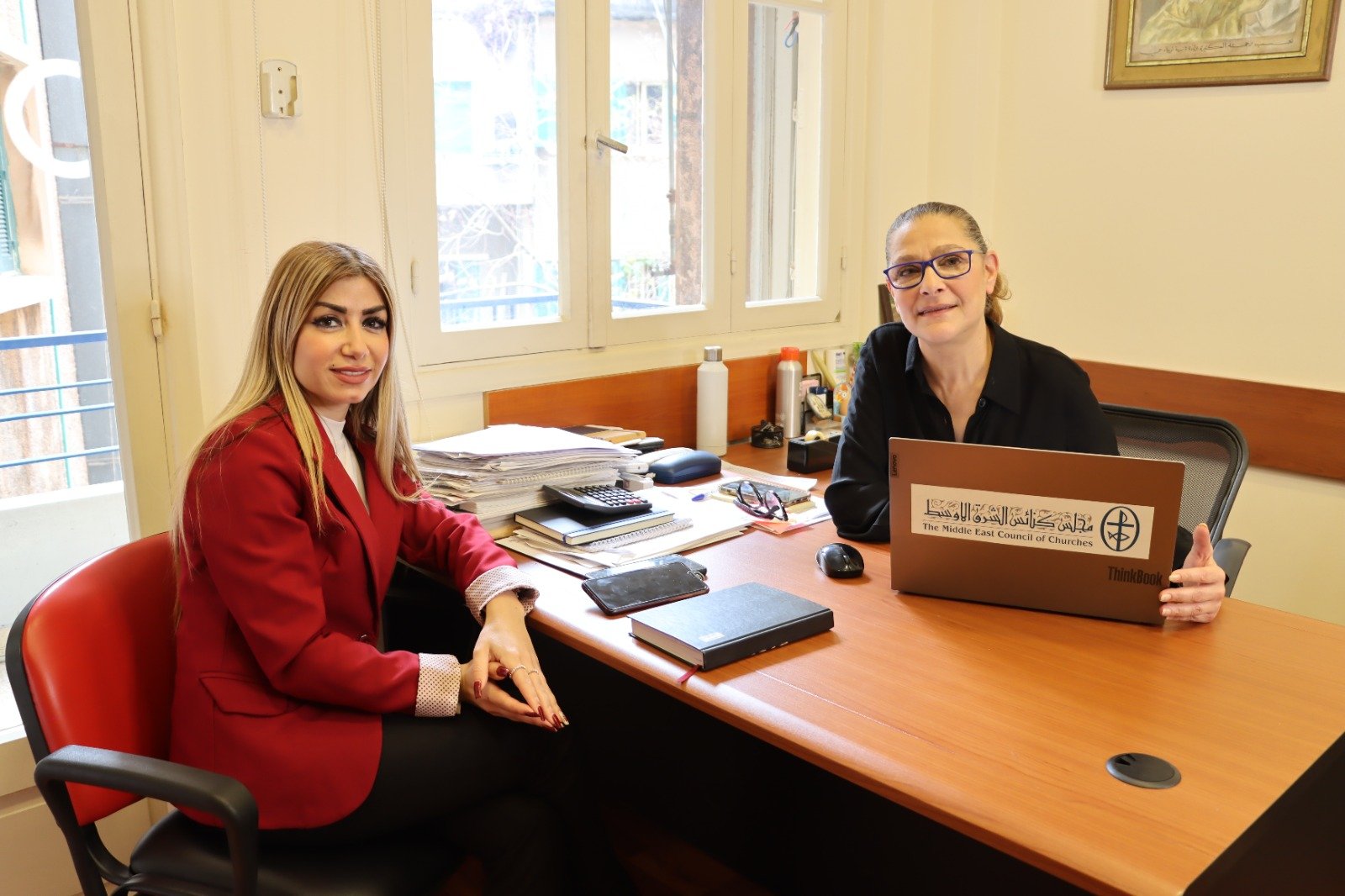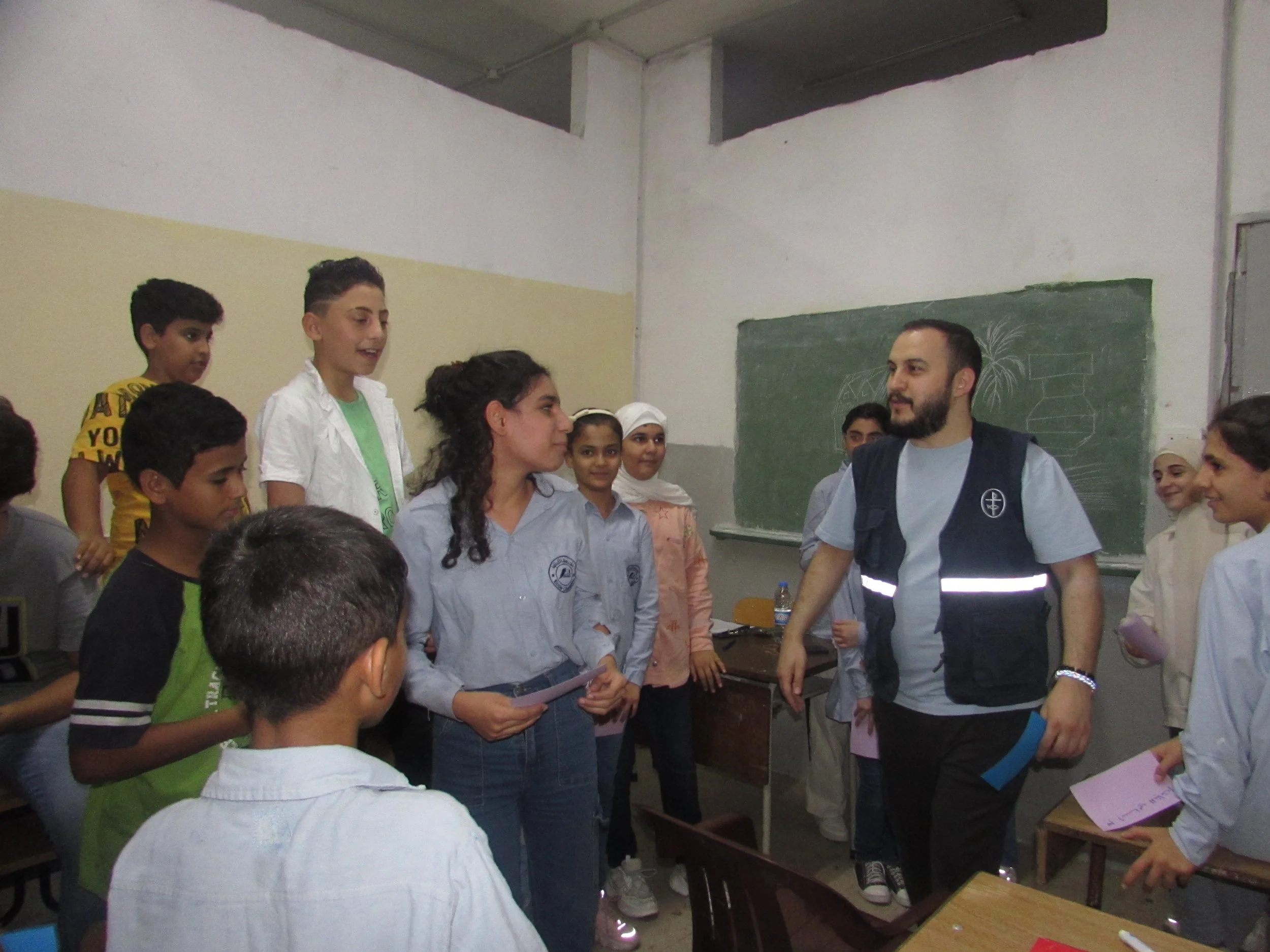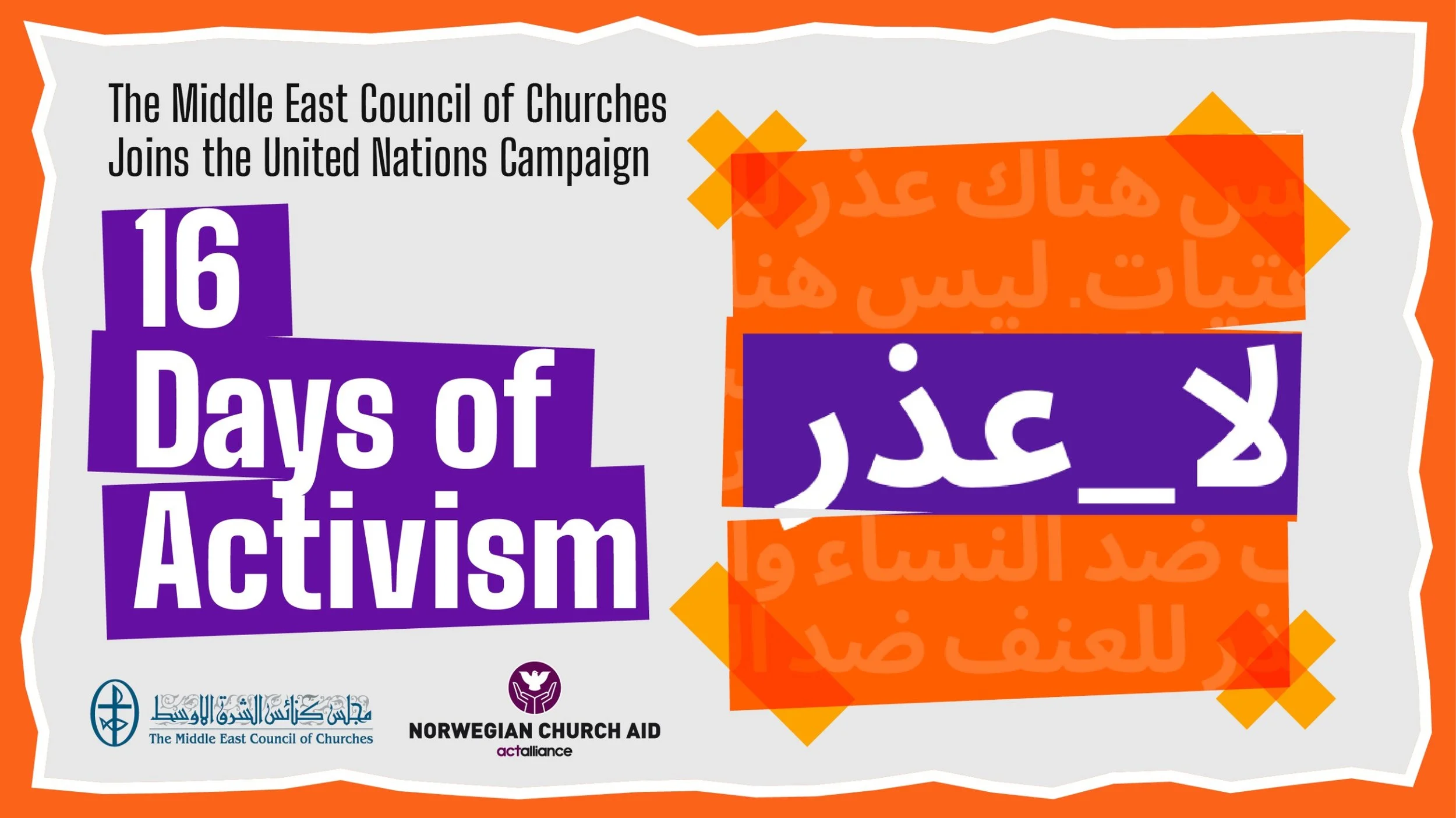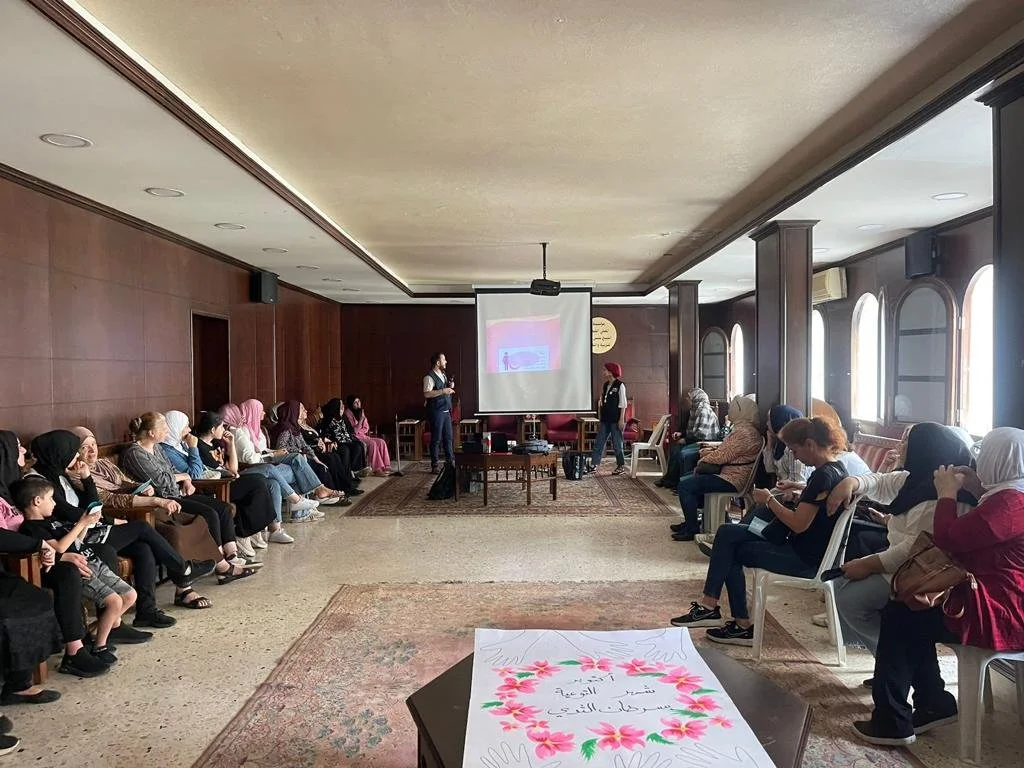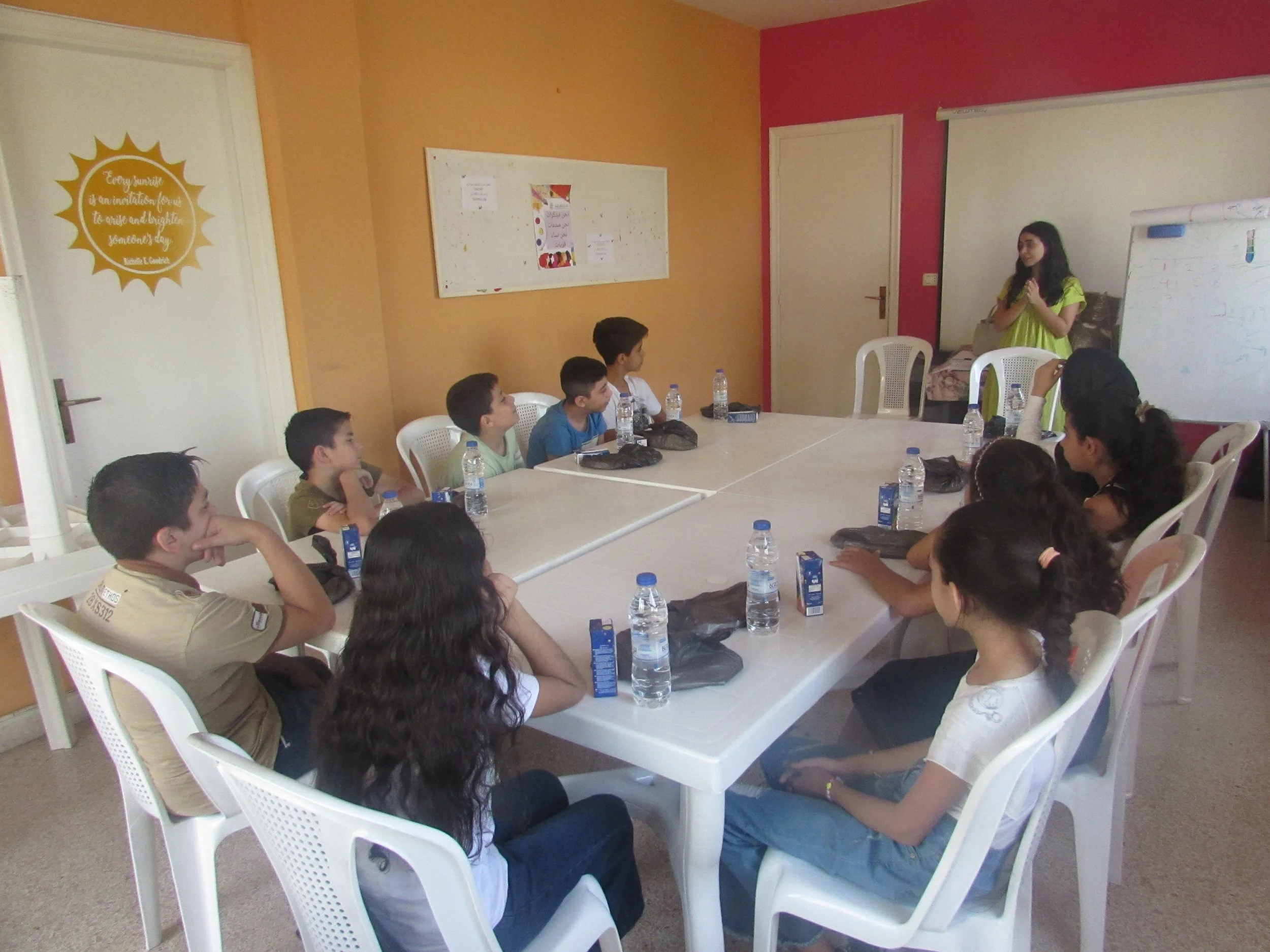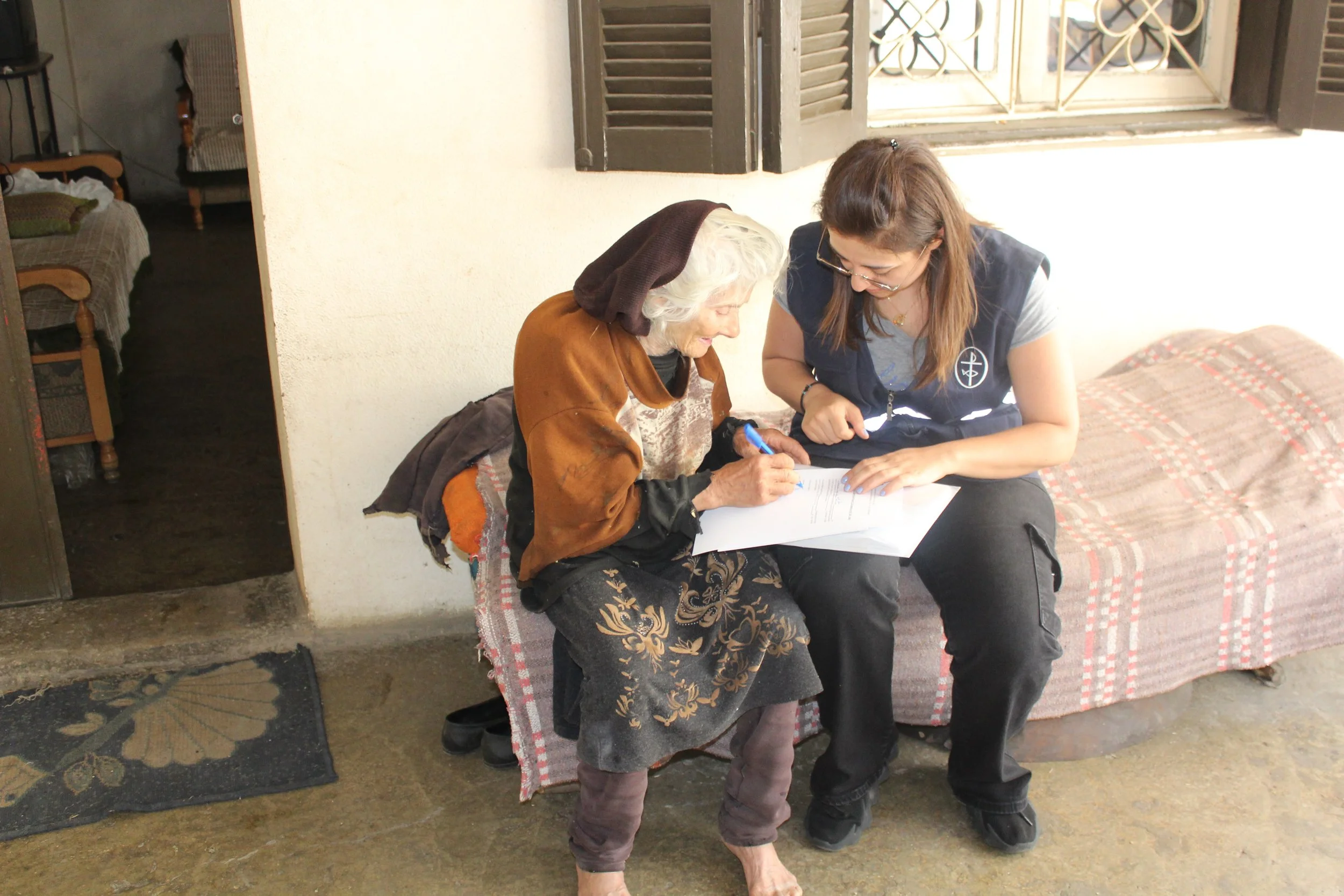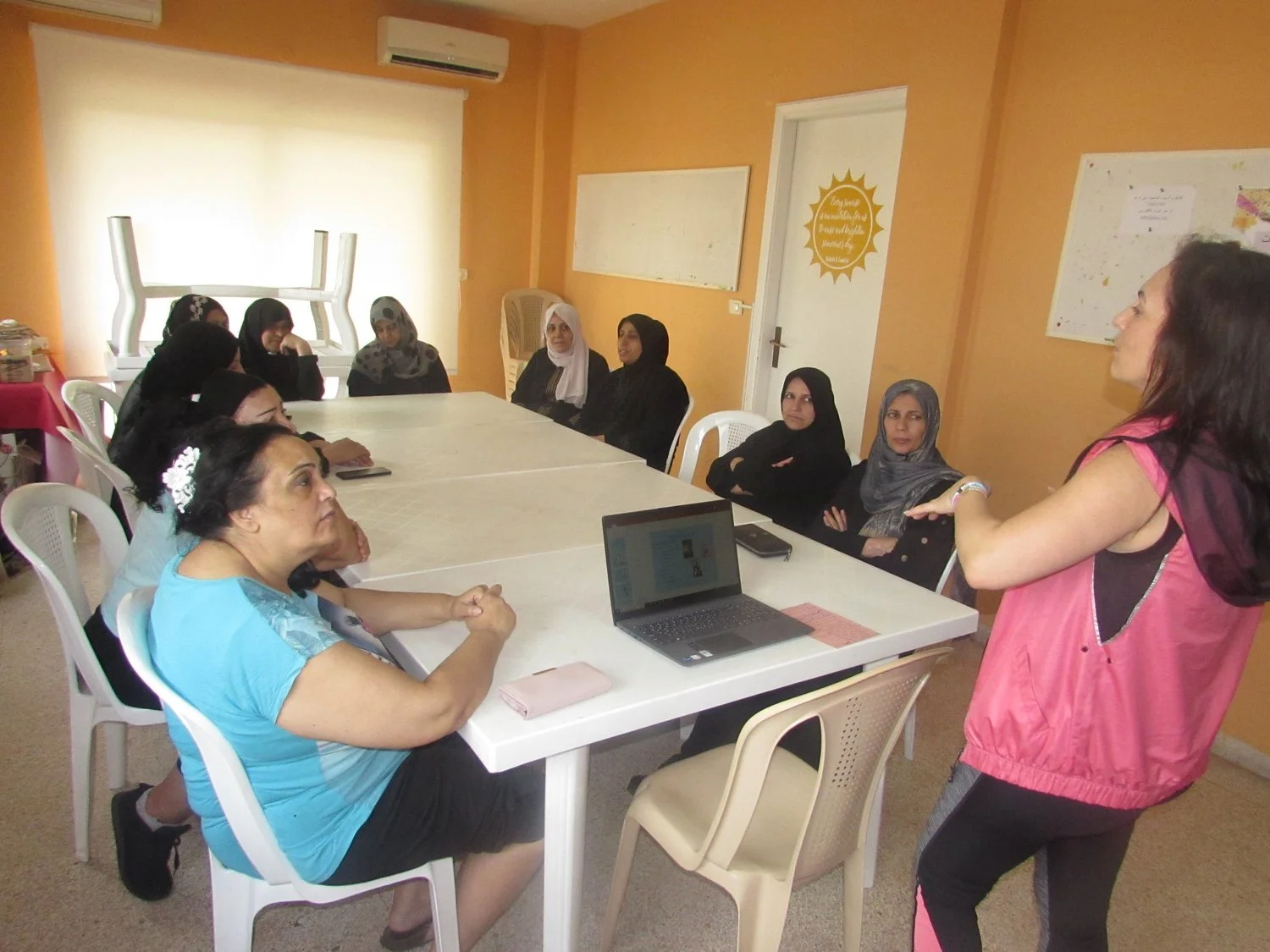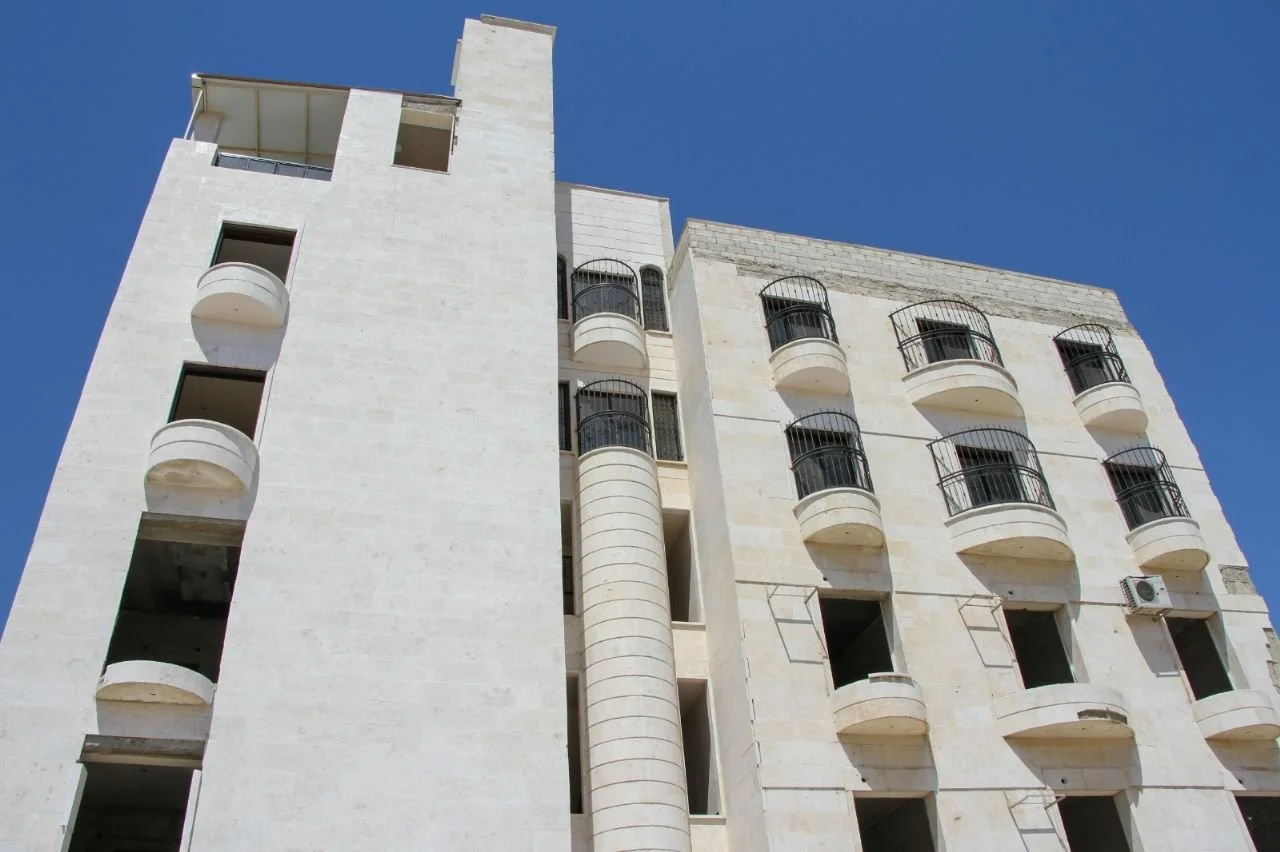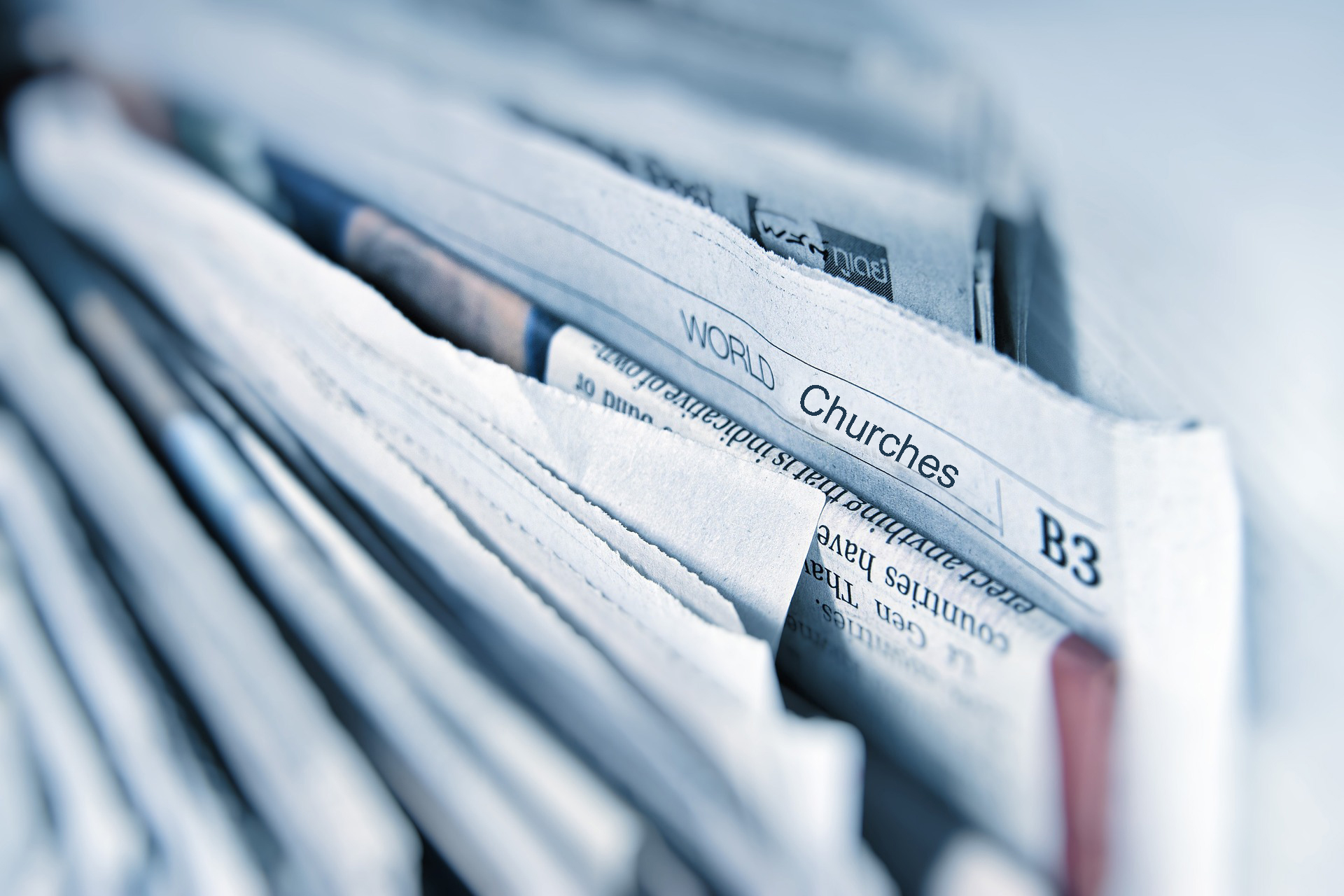
MECC
Rehabilitation of Four Schools in Al Sahweh and Al Yadouda in Rural Dara’a
The Diakonia and Social Service Department, at the Middle East Council of Churches (MECC), continues its efforts to provide a safe and healthy environment for students by renovating and rehabilitating schools that have been damaged by war in various Syrian governorates.
In Dara’a, the MECC team of the Diakonia and Social Service Department worked on the rehabilitation of four schools in the villages of Al Sahweh and Al Yadouda.
The rehabilitation activities included the rehabilitation of Water, Sanitation and Hygiene (WASH) infrastructure and pertinent equipment: maintenance of the pipes and water networks, and installation of taps, toilets, windows, doors, tile, ceramic, electric cables, water pumps, and tanks, in addition to completing the required painting work. The entire school was painted, along with the provision of new classrooms benches, fences for every school, and canopies were installed in the courtyards to protect students from the sun and rain.
It is worth mentioning that 987 students benefited from the rehabilitation and also received hygiene kits.
Video - Rehabilitation of Health Facilities in Many Schools in Dara'a Governorate
Within the framework of maintaining a healthy and clean environment in schools, the Middle East Council of Churches (MECC), Diakonia and Social Service Department, Syria’s Office, restored and rehabilitated health facilities in many schools in Dara'a Governorate. The restoration activities included the rehabilitation of Water, Sanitation and Hygiene (WASH) infrastructure, maintenance of the drinking water network, and installation of the other necessary equipment. It contributed to providing clean and safe health facilities away from the spread of diseases. Hence, this video highlights this restoration program that was implemented in Dara’a.
Cash Assistance Restores Hope Amidst Difficult Living Conditions in Lebanon
With the escalation of wars and conflicts in the world and the Middle East, the Lebanese people are suffering from economic, social and health crises... which are casting a shadow over the country. Therefore, many citizens are facing daily challenges, especially since many of them live alone without a source of income or support to help them secure their basic needs.
For its part, the Middle East Council of Churches (MECC) is seeking, since its founding, to heal the wounds of the neediest and affected people due to the difficult living conditions through humanitarian programs that it implements during the year. In this context, the MECC Diakonia and Social Service Department, Lebanon’s Office, recently distributed new multipurpose cash assistance to 975 Households which included female-headed households and elderly who are living alone and who do not have anyone to turn to.
MECC Restores 27 Buildings Damaged by the Earthquake in Aleppo
On the sixth of February 2023, Syrians woke up to a new disaster that exacerbated their suffering. In a moment everything changed, buildings and houses collapsed, the ground shook, and days unfolded with a harshness reminiscent of war.
The earthquake that struck several provinces in Syria caused a great humanitarian catastrophe by all standards, with great material and human losses. Whoever got out alive from under the rubble, and whoever escaped from death, re-experience displacement.
However, despite all this pain, there was a ray of light that illuminated the darkness of the people in the areas affected by the earthquake disaster. The Middle East Council of Churches (MECC), through its Diakonia and Social Service Department in Syria, quickly moved to stand by the affected people by providing food, health assistance, and financial aid in the provinces of Aleppo, Latakia, and Hama.
Empowering Women in Lebanon by Developing their Skills
With the worsening living crises in Lebanon on various social, economic and health levels…, the Lebanese people are suffering under the weight of daily pressures and many challenges that restrict them and reduce their usual activities. Therefore, and out of its belief in the necessity of supporting the neediest and most vulnerable groups, the Middle East Council of Churches (MECC) continues its social services in order to restore hope to many brothers and sisters who have drowned in despair.
In this context, the MECC Diakonia and Social Service Department, Lebanon’s Office, held, during December 2023, five soft skills training courses, in which a group of 10 women participated, with the aim of empowering them and developing their abilities. These sessions were implemented at a time when many of them are suffering from the difficult circumstances that surround them, especially since some of them are either unable to find decent jobs or are holding on to meager low-paying ones.
Video - Highlight on the Work of the MECC Diakonia and Social Service Department, Lebanon’s Office, Via an Interview with the Office Director Ms. Nina Hallak
Since its establishment in 1974, the Middle East Council of Churches (MECC), in parallel with its mission in enhancing the Ecumenical spirit in the Middle East, has also sought to carry out its humanitarian mission in various countries of the region through the programs of the Diakonia and Social Service Department. This is in order to support the neediest and most vulnerable people and help them overcome daily challenges, especially with the worsening crises, conflicts and wars in the region.
The Lebanon’ Office in the Diakonia and Social Service Department at the Middle East Council of Churches (MECC) works hard to preserve the human dignity and rights. In this context, you can find in the video an interview with Ms. Nina Hallak, the Director of the Lebanon’s Office of the Diakonia Department, during which she sheds light on the Department’s work and humanitarian, social, health, cultural and educational programs that are implemented in various Lebanese territories without discrimination.
Nina Hallak: “The Diakonia Department is for Humans and Our Goal is to Preserve Their Dignity”
It is the Middle East Council of Churches (MECC), which deals with Ecclesiastical, humanitarian and social issues. Since its foundation in 1974, MECC has worked to strengthen the Church’s mission and highlight its pioneering Ecumenical role at all levels, and has proven that the Church is for Man.
Yes, it is the Middle East Council of Churches (MECC), which works with non-stop through its various offices and programs in Lebanon and the rest of the region and seeks to heal the wounds that are increasing amidst the current challenges and harsh circumstances.
The Diakonia Department Office in Lebanon, which was founded since the establishment of the MECC in 1974, is one of the most important offices that is distinguished by its humanitarian, social, health, cultural, and educational programs across various Lebanese territories without discrimination, because what is most important to the Department’s work is the human being.
In a media interview, the Director of the MECC Diakonia Department Office in Lebanon Ms. Nina Hallak spoke at length about the work of the Diakonia Department Office and said:
“The name of Diakonia indicates its true meaning, that is, service through the Church and humanitarian work, and includes many programs and projects, as such relief work and emergency responses, as well as skills development that help the Lebanese citizen to find job opportunities via his participation in training workshops and improving his skills.”
Video - The Middle East Council of Churches Contributes to Ensuring the Stability of More Than 100 Families in the City of Aleppo - Syria
Retrofitting of 28 Buildings Following the Earthquake that Struck the North of the Antiochian Levant
About 10 months have passed since the catastrophic earthquake that struck the North of the Antiochian Levant on 10 February 2023. The Syrians are still suffering from its massive repercussions, as their wounds have not yet healed. In response to the emergency humanitarian appeal in Syria, the Middle East Council of Churches (MECC) continues its humanitarian and relief work in the wounded Syria since the first moments of the earthquake.
In this context, the MECC work included providing the necessary support to those affected by distributing basic aid for daily life. Recently, and with the support of its partners, MECC was able to secure the stability of more than 100 families in the city of Aleppo by retrofitting 28 buildings that collapsed as a result of the earthquake.
In the video, one of the surviving women in the city of Aleppo describes the first moments of terror immediately after the earthquake occurred, and speaks about the difficult circumstances they experienced in Syria as a result of this disaster. The video also highlights the Middle East Council of Churches' ongoing relief and field work to restore hope to the affected people.
The Middle East Council of Churches Organizes Awareness Sessions on Sensitive Social Issues for Schools’ Students
“Every child deserves to feel safe in the school and local society.” With these words, UNICEF is sounding the alarm bell due to the escalation of serious risks resulting from the high rate of violence against children and adolescents and the violation of their basic rights in many cases due to difficult living conditions. Therefore, it has become necessary to take serious measures to protect children and adolescents and preserve their dignity. Hence, many international and regional parties seek to raise awareness about sensitive social issues in order to reduce every phenomenon that violates human dignity.
From its end, the Middle East Council of Churches (MECC) has been working since its founding and through its various programs to raise awareness on societal dangers in order to contribute to reducing violence and healing the wounds of the most vulnerable.
Video - With the UN, No Excuse
MECC Joins the 16 Days Campaign “UNITE to End Violence against Women”
And Interventions Stress the Importance of Women’s Protection and Men’s role in Societies
Amidst the high rate of violence against women around the world, the United Nations is sounding the alarm, especially through an annual international awareness campaign extending over 16 days that it launched in 2008 under the title “UNITE to End Violence against Women. It begins on 25 November with the International Day for the Elimination of Violence Against Women and ends on 10 December with International Human Rights Day.
In its turn, the Middle East Council of Churches (MECC) joins this campaign, which this year took the slogan “No Excuse,” and emphasizes the necessity of facing the violence against women, preserving human dignity, and the importance of men’s role in protecting the family and contributing to building better societies. This is what was confirmed by the beneficiaries of the services provided by the “Our Lady Dispensary” in Beirut, and affiliated with MECC.
MECC Begins Its Response to the Needs of the Displaced People from the Lebanese South
But the Need is Still Urgent and Necessary at Various Levels!
In response to the escalating situation in the Lebanese South due to the ongoing war at the Lebanese borders, and the consequent displacement of people from their homes, a shelter in the city of Tyr was set up to accommodate fleeing civilians from the dangerous circumstances in the South. As the shelter is crowding with newcomers, humanitarian needs are also piling up. Currently, there is a shortage in necessary items such as Hygiene Kits, disinfections, food item, bed cover and the list goes on.
Luckily, with the timely contribution of the MECC partners such as the international organization Norwegian Church Aid (NCA), and in coordination with the Disaster Risk Reduction (DRR) Unit and the Union of Tyre Municipalities (UOTM) - represented by Mr. Mortada Mhanna, the Middle East Council of Churches (MECC) is being able to respond to such needs. As such, the Diakonia and Social Service department of the MECC was busy throughout this period with distributing these essential items. As expected, they were quickly exhausted as needs remain high at various levels.
Rehabilitation of Health Facilities in Many Schools in Rural Damascus
Students face many difficulties when they lack clean and usable health facilities, as well as safe drinking water in schools. Poor health facilities can be a source of disease spread, such as hepatitis, typhoid, and cholera. Providing clean and safe health facilities in educational institutions undoubtedly has a significant impact on improving health and educational outcomes.
Therefore, the Diakonia and Social Service Department, at the Middle East Council of Churches (MECC), worked on renovating and rehabilitating health facilities in four government primary schools in Kaswa and Akraba in the countryside of Damascus, Syria. These schools are Akraba The 2nd, Zakia alsadisa, Khiara Z – N, and Khiara The 2nd.
The rehabilitation activities included the rehabilitation of Water, Sanitation and Hygiene (WASH) infrastructure and its equipment, maintenance of the drinking water network, and installation of taps, toilets, doors, tile, ceramic, electric cables, water pumps and tanks, and water pipes in addition to completing the required painting activities. Moreover, solar energy work was executed.
“You Deserve Life”
The Middle East Council of Churches, in cooperation with ABAAD Organization
In an Awareness Session About Breast Cancer
Under the title of "You Deserve Life", and on the occasion of the Pink October Month, the international awareness month of breast cancer, the medical team at the Middle East Council of Churches, Lebanon’s Office, in collaboration with ABAAD organization conducted an awareness activity at the "Martyr Hassan Khaled Educational Center" which is affiliated with Dar El-Fatwa. Participants were 60 women from different nationalities.
The activity included a presentation which highlighted the importance of early detection through self- examination and mammography as well as the types of cancer, and the methods of treatment, which were presented by Dr. Sameer Shleweet who is specializing in Obstetrics & Gynecology and from the MECC team. Moreover, the women participated in some recreational activities that contributed to reducing the daily pressures that may surround them.
Psychosocial Support for Children in Lebanon Amidst Difficult Living Conditions
In light of the difficult living conditions that Lebanon is suffering from as a result of the various severe crises that are casting their shadow over the country, children are suffering from the repercussions of the daily pressures to which their families may be exposed. In many instances, this is what hinders their activity and negatively affects their mental health and well-being. To make matters worse, they lack the social safety nets that can protect them from any form of abuse or negative conditioning
For this reason, the Middle East Council of Churches seeks to accompany children, who are considered among the weakest groups in societies, in order to support them by creating a safe space for them to express their concerns and allowing them to feel at ease. In this context, the Department of Diakonia and Social Service, Lebanon’s Office, at the Middle East Council of Churches, organized many psychosocial support sessions, last September, for a group of children, where they were taught about ways on how to deal with stigmas such as bullying, psychological distress, and unpleasant feelings or emotions…
MECC in Jordan Announces the Starting of New Vocational Training Courses
The Middle East Council of Churches (MECC) in Jordan announces the beginning of new vocational training courses that aims at empowering vulnerable young men and women in order to create job opportunities for both from the neediest communities of refugees and locals.
By bringing together individuals from diverse backgrounds, MECC aims to showcase the power of unity and collaboration in the communities. These courses have been specifically designed to provide opportunities for young women and men, by learning and working.
In the vocational courses implemented by MECC, the team equips the participants with valuable skills which have the potential to make profound behavioral changes, investing in the potential of our participants to be leaders of positive change that can contribute to the well-being of their families and communities.
Elderlies in Lebanon Are Searching for Hope
The Middle East Council of Churches’ Team Accompanies the Neediest
As people age, their physical abilities degrade rendering them less active then before and making them in need of assistance and support to help them regain their hope despite all the pressures that surround them.
In Lebanon, the difficult living conditions are burdening the citizens who are struggling amidst the worsening social and economic crises. As for the elderly, they are, in turn, facing greater difficulties and challenges as a result of the absence of laws and procedures that protect them and preserve their dignity.
Ibrahim Habib is 76 years old and lives in one of the Beirut areas. Ibrahim has not only reached a critical period in his life, but also has a disability in his leg preventing him from easily commuting in his own house and even at public places.
Supporting Refugee Women in Lebanon Through Capacity Building
With the deterioration living conditions in Lebanon, refugees, like all Lebanese, suffer from severe economic and social crises in the country. Due to the unavailability of sufficient job prospects and the nature of their legal status in Lebanon, their situation is getting worse, and many refugees struggle to secure a source of livelihood. Hence, refugees are facing many mental health challenges, in addition to the economic and social challenges that hinder them.
In this context, the Middle East Council of Churches, Diakonia and Social Service Department, Lebanon’s Office, continues to implement the capacity building program, as it recently organized new sessions of skills development for a group of refugee women at Our Lady Dispensary, affiliated to MECC, and located in the Sabtieh region – Lebanon.
Cash Assistance Alleviating Social Burdens in Lebanon
Due to the worsening conditions in Lebanon’s relatively remote locations, and the absence of government policies to develop such areas, poverty is increasing during a time when humanitarian actors are suffering from donor shortage. However, the Middle East Council of Churches, thanks to its partners’ gracious support, is able to mobilize to alleviate the burdens of several households.
As such, scoring was undertaken, with the help of local Churches, to identify the most vulnerable 400 households among a selection of 500, in the Akkar and South of Lebanon areas. Results were staggering as most of the beneficiaries in Akkar – North Lebanon needed the cash assistance mainly for buying medication then food, whereby in South Lebanon, the majority needed the money to keep a roof over their heads. As such, money was dispatched through a local cash transfer service to the vulnerable households.
Psychological Support Amidst the Difficult Circumstances in Lebanon
In light of the severe crises that cast its shadows over Lebanon, mental health is becoming an issue in the country. Therefore, the Middle East Council of Churches, Diakonia and Social Service Department, Lebanon’s Office, continues its implementation of mental health awareness sessions. It organized recently a new session Session to address such a topic. A group of women were invited to the session at Our Lady Dispensary, affiliated to MECC, and located in the Sabtieh region – Lebanon.
During the session, one of the Council’s social workers explained to the participant’s ways of dealing with stress and how to mitigate its impact. Usually, anxiety is the real culprit behind stress and failing to understand or manage it can lead to more significant problems such as depression, unproductivity, social isolation, and in extreme cases, suicide.
Al-Rahmeh Home for Elderly in Aleppo Gets Rid of the Dust of War
The war in Syria has forced thousands of young people to travel in search of a better life, leaving behind them elderly parents who require care and attention. This has increased the number of elderlies in need of someone to provide them with the necessary care and support. Hence, the Middle East Council of Churches and the Syriac Orthodox Patriarchate in Syria have undertaken the restoration of the Al-Rahmeh home for elderly as part of the “Restoration Fund for Rehabilitation of Faith-based Social Services & Religious Infrastructure Damaged During the Crisis in Syria” that is implemented by MECC in cooperation with “Kerk in Actie” (KIA) organization in the Netherlands.







